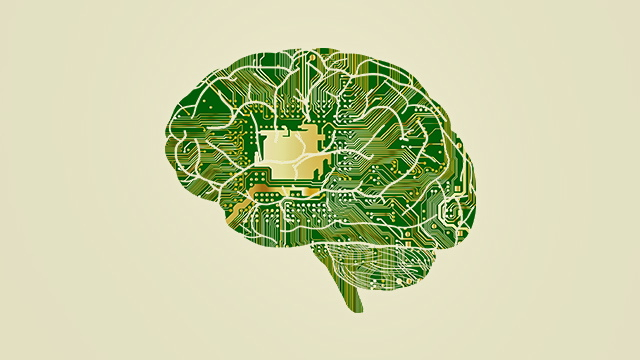Corporations Are Adopting AI, Startup Debuts AI-Based Video
January 16, 2017
As artificial intelligence and machine learning become less expensive, their role is taking off in corporate America, and will soon extend from routine tasks to more complex, sophisticated decision-making. The neural network, for example, mimics the operations of the human brain, enabling AI to learn without extensive human intervention. Companies that are moving towards AI include AIG, which has shifted funds that would have gone to outsourced projects to AI, and aims to hire more programmers with AI skills.
The Wall Street Journal quotes AIG chief information officer Philip Fasano as saying that, “artificial intelligence has finally come of age.” International Data Corp. estimates that corporate spending on AI technologies will grow from $8 billion in 2016 to $47 billion in 2020. According to AI startup Bottlenose founder Nova Spivack, “the latest versions of deep learning employ hundreds of layers of neural networks.”
Applications include Facebook Messenger, which supports “at least 33,000 chats,” and a Massachusetts General Hospital system that will use a 10-billion image database to “identify anomalies on CT scans and other medical images.”
General Electric uses computer-vision to “quickly identify cracks in jet engine blades,” and AIG’s five “virtual engineers” collect and analyze system performance data. With natural language processing, Fannie Mae can now create industry reports for more than 6,000 potential customers, rather than 100 with human analysts alone.
Now, startup Octi hopes to “make it easier for brands to ramp up the volume and quality of their content on social media, with the help of artificial intelligence,” reports WSJ. Founder Justin Fuisz says the video technology company will “help marketers pull together video shot by teams on the ground at live events and use that content to populate their various social media feeds.”
That would relieve companies of the “ever-pressing need to produce more and more content for their social media channels,” which can be expensive and vary in quality.
With Octi, companies can shoot video with multiple cameras simultaneously and then use AI to “automatically produce a seamlessly edited single clip to be distributed on social media.” Anheuser-Busch InBev and startup incubator Techstars have invested in Octi, which will launch a “pilot test” soon.
“This allows us to create quality content at scale,” said Anheuser-Busch director of digital innovation Ben Kosinski. “Typically for something like this you have to bring on agencies, pay them. That takes up a lot of time. This lets you produce high quality content without all that.”
Fuisz describes how a brand could send “a group of social media executives” — who don’t need to be professional videographers — to, say, the Super Bowl, where they “shoot lots of footage on their phones using Octi’s app.” Octi’s editing filter will choose the desired clips that can “instantly be woven together in a narrative form,” similar to Snapchat or Instagram Stories. Then, with a digital dashboard, the user can “quickly push the videos out to social media platforms like Facebook and Twitter.”
Brands could also use video shot by fans at events and the results can be used for live streaming on Facebook. “Brands really need their video to be authentic these days,” he said. “This feels like it fills that gap.”


No Comments Yet
You can be the first to comment!
Sorry, comments for this entry are closed at this time.